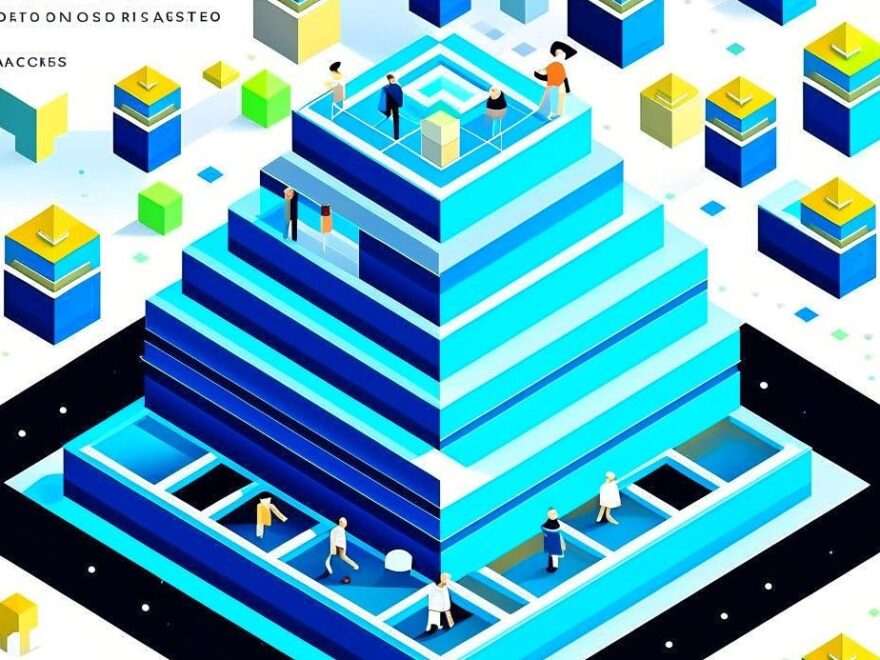Hey there, crypto enthusiasts! Buckle up as we delve into the fast-evolving crypto-sphere where decentralization is redefining the rules of the game. Today, we’re getting under the hood of DAOs – Decentralized Autonomous Organizations. These blockchain wonders are transforming traditional hierarchies into robust, consensus-driven ecosystems.
We’re living the future, traders, where ‘power to the people’ isn’t just a slogan; it’s the ethos behind the crypto frontier. DAOs are the poster child of this paradigm shift, taking democratic decision-making to a whole new level. Pack your bags, because we’re heading into an era where governance meets blockchain in a powerful new alliance.
The Birth of DAOs
Folks, buckle up for a trip down memory lane. Remember when Bitcoin’s genesis block was mined in 2009? Ah, those were simpler times. But that wasn’t all. It paved the way for something massive – DAOs, or Decentralized Autonomous Organizations. Think of DAOs as the next-gen boardrooms, but operating in cyberspace and powered by smart contracts.
Now, imagine a world where ownership, governance, and decisions are dictated by tokens and not by suits. Brought to life through the Ethereum network, DAOs came into play around 2013. It was like a breath of fresh air in a centralized system, causing the bullish crypto-traders to sit up and take notice.
How DAOs Work
At its core, a DAO operates on a set of pre-programmed rules which the members directly control. It’s a democratic process, where token holders vote on decisions regarding the organization. It’s like the corporate governance of a traditional company, but without the suits and the boardroom politics.
Let’s take an example: MakerDAO. It’s one of the best-known DAOs that allows holders of its token, MKR, to vote on various aspects of the system, like fee rates. The system is fully transparent and anyone can check the voting record.
The Potential of DAOs
The rise of DAOs could redefine organizational structure, and many believe this is the future. DAOs operate without hierarchical leadership, eliminating the potential for corruption or unethical behavior that can stem from centralized power.
Additionally, DAOs promote inclusivity. Anyone, regardless of their location, can become a member, contributing to decision-making processes and sharing in the organization’s success. This democratization is indeed a game-changer.
But it’s not just about governance. DAOs can be useful for any collaborative efforts. They could reshape the way we approach collective funding, intellectual property rights, even climate change initiatives. For instance, MolochDAO was created to fund Ethereum projects and has been quite successful in doing so.
Concerns and Regulatory Challenges
But let’s not get ahead of ourselves. While DAOs promise a more democratic, transparent future, there are significant hurdles to overcome, particularly regulatory challenges.
The infamous hack of The DAO in 2016, resulting in a loss of about $60 million in cryptocurrency, exposed serious security flaws in DAOs. Such incidents remind us that while DAOs can offer security benefits over traditional organizations, they also introduce new vulnerabilities.
Further, how should governments regulate DAOs? How do you apply traditional organizational law to something entirely new? How do you protect investors? These are all tough questions, and answers are needed if DAOs are to become more widespread.
The Future of DAOs: A Brave New World?
In the final analysis, the universe of DAOs is rapidly evolving, akin to a bull run where opportunities seem endless. The crypto landscape is being reshaped, and just like hodling, playing the long game with DAOs could be key.
In this brave new world, we’re witnessing the very genesis block of a decentralized era. Governance token holders, you’re not just speculators but pioneers, trailblazing a course towards a future where autonomy, transparency, and collective decision-making are the norm. DAOs aren’t just another altcoin buzz, they’re the dawning of a revolution in organizational governance. Stay long and prosper, fellow crypto enthusiasts!
